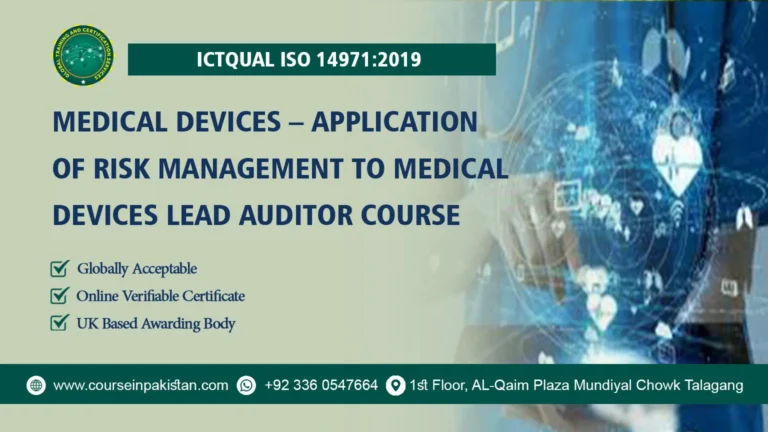
The ICTQual Level 6 Diploma in Telecom Engineering is designed to provide learners with comprehensive knowledge and practical skills in the field of telecommunications, networking, and signal processing. This diploma equips learners with the expertise required to plan, design, manage, and maintain modern telecommunication systems and networks. It covers foundational, intermediate, and advanced studies in telecom engineering, including mobile communications, satellite systems, optical networks, wireless technologies, and emerging 5G/6G technologies.
This qualification is globally recognized and fully flexible, allowing learners to study at their own pace from anywhere in the world. The certification is British Council verificable, MOFA and Embassy attestable, making it ideal for career advancement, job opportunities, and iqama approval. Fresh learners are required to complete all 36 mandatory assignments within three years, while experienced professionals with at least six years of verifiable telecom experience can achieve certification in a shorter period by defending their knowledge in professional discussion meetings with an ICTQual AB approved assessor. This unique flexibility ensures that both newcomers and seasoned professionals can benefit from this internationally recognized diploma.
Course Overview
The ICTQual Level 6 Diploma in Telecom Engineering is a 360-credit, assignment-based program designed for learners aiming to excel in the telecommunications industry. It provides a robust foundation in telecom principles, networking, and signal processing, progressing to advanced topics such as wireless communications, network security, and emerging technologies. The diploma enables learners to acquire skills for designing, implementing, and managing telecom systems while also understanding regulatory standards, safety, and sustainability practices.
This qualification caters to both fresh learners who will complete all assignments over three years and experienced telecom professionals who can leverage their prior expertise for accelerated certification. The program is ideal for career progression, international recognition, and practical application in diverse telecom environments, ensuring graduates are ready for high-demand roles in the global telecommunications sector.
Key Highlights of the Course:
- Globally recognized 360-credit Level 6 Diploma in Telecom Engineering
- Fully assignment-based with flexible, self-paced study options
- Suitable for both fresh learners and experienced professionals
- British Council verificable, MOFA and Embassy attestable
- Practical focus on telecom systems, networks, wireless technologies, and emerging innovations
Course Benefits
Career Advancement
- Gain industry-recognized expertise in telecom engineering and network management
- Prepare for roles such as Telecom Engineer, Network Analyst, RF Engineer, and System Designer
Practical and Technical Skills
- Develop hands-on skills in telecom systems design, installation, and maintenance
- Learn modern technologies including 5G, IoT, wireless communications, and satellite networks
Global Recognition
- Achieve a qualification verifiable by the British Council and attested by MOFA & Embassy
- Enhance employability in domestic and international telecom industries
Flexible Learning
- Study at your own pace, from anywhere in the world
- Accelerated certification for experienced professionals with relevant industry experience
Entrepreneurial and Professional Growth
- Learn project management, network planning, and strategic telecom operations
- Build a foundation for leadership or consultancy roles in telecommunications
Course Study Units
This qualification, the ICTQual Level 6 Diploma in Telecom Engineering 360 Credits – Three Years, consists of 36 mandatory units.
Year 1: Foundation and Core Skills
- Introduction to Telecommunications Engineering
- Basic Electrical Engineering Principles
- Digital Electronics and Circuit Design
- Communication Systems Fundamentals
- Networking Fundamentals
- Introduction to Wireless Communications
- Mathematical Methods for Telecom Engineers
- Signals and Systems in Telecommunications
- Telecom Hardware and Software Integration
- Principles of Analog Communication Systems
- Fundamentals of Radio Frequency Engineering
- Telecommunications Safety and Standards
Year 2: Intermediate Concepts and Applications
- Advanced Networking and Routing Protocols
- Microwave and Satellite Communications
- Fiber Optic Communications and Systems
- Mobile Communications and 4G Networks
- Digital Signal Processing for Telecom Engineers
- VoIP and IP-Based Communication Systems
- Wireless Network Design and Optimization
- Telecom System Architecture and Design
- Advanced Radio Frequency and Antenna Design
- Network Security in Telecommunications
- Telecom Software Development and Scripting
- Telecom Project Management and Leadership
Year 3: Advanced Topics and Specialization
- Advanced Telecom Networks and Cloud Computing
- 5G Technology and Future Communication Systems
- Network Traffic Management and Quality of Service
- Telecom System Integration and Testing
- Telecommunications Policy, Regulation, and Ethics
- Telecom Data Analytics and Big Data
- Internet of Things (IoT) in Telecommunications
- Satellite and Space Communications Systems
- Advanced Network Design and Implementation
- Telecom Troubleshooting and Maintenance
- Telecom Industry Trends and Innovations
- Final Year Project in Telecom Engineering
Learning Outcomes
Year 1: Foundation and Core Skills
Introduction to Telecommunications Engineering
- Understand the basic principles, history, and applications of telecommunications.
- Identify different telecom systems and their roles in modern communication networks.
Basic Electrical Engineering Principles
- Apply fundamental electrical concepts such as voltage, current, and power in telecom circuits.
- Analyze basic electrical circuits used in telecommunications.
Digital Electronics and Circuit Design
- Design and interpret digital circuits and logic systems.
- Apply digital electronics knowledge to telecom signal processing.
Communication Systems Fundamentals
- Understand analog and digital communication principles.
- Identify modulation, demodulation, and signal transmission techniques.
Networking Fundamentals
- Explain the basic concepts of computer networking, protocols, and topologies.
- Configure simple networks and troubleshoot basic connectivity issues.
Introduction to Wireless Communications
- Understand the principles of wireless communication systems.
- Explain propagation, frequency bands, and basic wireless network components.
Mathematical Methods for Telecom Engineers
- Apply mathematical techniques such as Fourier analysis and matrices to telecom problems.
- Solve engineering problems using mathematical modeling.
Signals and Systems in Telecommunications
- Analyze continuous and discrete-time signals.
- Apply signal processing techniques to communication systems.
Telecom Hardware and Software Integration
- Understand the integration of hardware and software in telecom systems.
- Implement basic telecom system configurations and troubleshoot integration issues.
Principles of Analog Communication Systems
- Explain amplitude, frequency, and phase modulation techniques.
- Analyze analog signal transmission and reception.
Fundamentals of Radio Frequency Engineering
- Understand RF spectrum, transmission lines, and antennas.
- Apply RF principles in the design of communication systems.
Telecommunications Safety and Standards
- Recognize safety protocols and regulatory standards in telecom engineering.
- Apply standard compliance practices in telecom system design and operation.
Year 2: Intermediate Concepts and Applications
Advanced Networking and Routing Protocols
- Design and configure complex networks using advanced routing techniques.
- Analyze network traffic and optimize routing efficiency.
Microwave and Satellite Communications
- Understand microwave transmission principles and satellite communication systems.
- Design basic satellite links and calculate link budgets.
Fiber Optic Communications and Systems
- Explain the principles of optical fiber transmission.
- Apply optical system design and troubleshooting techniques.
Mobile Communications and 4G Networks
- Understand cellular networks, mobile standards, and 4G LTE architecture.
- Analyze mobile network performance and coverage issues.
Digital Signal Processing for Telecom Engineers
- Apply DSP techniques in filtering, modulation, and signal analysis.
- Solve telecom signal problems using digital signal processing tools.
VoIP and IP-Based Communication Systems
- Understand Voice over IP (VoIP) technologies and protocols.
- Configure and troubleshoot IP-based communication systems.
Wireless Network Design and Optimization
- Design wireless networks considering coverage, interference, and capacity.
- Implement optimization techniques for efficient wireless communication.
Telecom System Architecture and Design
- Develop system architecture plans for telecom networks.
- Integrate multiple subsystems into a functional communication network.
Advanced Radio Frequency and Antenna Design
- Design RF circuits and antennas for specific applications.
- Analyze antenna performance and radiation patterns.
Network Security in Telecommunications
- Understand security threats and protective measures for telecom networks.
- Implement basic security protocols and monitoring techniques.
Telecom Software Development and Scripting
- Develop scripts and software for network automation and monitoring.
- Apply programming knowledge in telecom system management.
Telecom Project Management and Leadership
- Plan and manage telecom projects effectively.
- Apply leadership skills in technical team coordination and project execution.
Year 3: Advanced Topics and Specialization
Advanced Telecom Networks and Cloud Computing
- Understand cloud computing integration in telecom networks.
- Design advanced network architectures with virtualized resources.
5G Technology and Future Communication Systems
- Explain 5G architecture, standards, and emerging communication technologies.
- Analyze network performance and deployment challenges for 5G systems.
Network Traffic Management and Quality of Service
- Apply QoS techniques to manage network traffic.
- Monitor, measure, and optimize network performance for reliability.
Telecom System Integration and Testing
- Integrate multiple telecom subsystems into a cohesive network.
- Conduct testing, validation, and troubleshooting for system deployment.
Telecommunications Policy, Regulation, and Ethics
- Understand global telecom regulations and ethical considerations.
- Apply compliance and ethical standards in professional practice.
Telecom Data Analytics and Big Data
- Analyze telecom network data using big data techniques.
- Apply insights from analytics for decision-making and optimization.
Internet of Things (IoT) in Telecommunications
- Integrate IoT devices into telecom networks.
- Understand protocols and challenges in IoT-enabled communication systems.
Satellite and Space Communications Systems
- Analyze satellite link design and orbital mechanics.
- Apply principles in planning and maintaining space communication networks.
Advanced Network Design and Implementation
- Design large-scale telecom networks considering redundancy and scalability.
- Implement and manage complex network deployments.
Telecom Troubleshooting and Maintenance
- Identify faults and implement solutions in telecom systems.
- Apply preventive maintenance techniques for network reliability.
Telecom Industry Trends and Innovations
- Keep updated with emerging technologies and innovations in telecom.
- Evaluate new tools, methods, and practices for potential application.
Final Year Project in Telecom Engineering
- Conduct an independent telecom project integrating knowledge from all units.
- Demonstrate problem-solving, analytical, and project management skills.
Who is This Course For?
- Individuals seeking advanced knowledge in telecommunications engineering.
- Students with a strong interest in networking, wireless communication, and emerging telecom technologies.
- Professionals aiming to enhance their career in telecom, ICT, or network engineering fields.
- Candidates with a basic foundation in electrical or electronic engineering who wish to specialize in telecom.
- Learners motivated to complete a fully assignment-based, self-paced program with global recognition.
Future Progression
- Senior Telecom Engineer, Network Architect, or Systems Analyst roles in telecom companies.
- Opportunities in 5G network planning, IoT implementation, and satellite communications projects.
- Career advancement into management positions such as Telecom Project Manager or Technical Lead.
- Engagement in research, innovation, and development of next-generation communication systems.
- Potential to pursue higher education such as Master’s programs in Telecommunications or ICT.
Academic Pathways:
- Progression to Master’s degrees in Telecommunications, Electronics, or Information Technology.
- Eligibility for specialized certifications in 5G, IoT, Cloud Networking, or Wireless Communication.
- Pathways to research-focused programs in Telecom and Communication Engineering.
- Opportunities to combine with business and technology programs for leadership roles in telecom sectors.
Conclusion
The ICTQual Level 6 Diploma in Telecom Engineering is a globally recognized, assignment-based qualification designed for both fresh learners and experienced professionals. With its flexible self-paced structure, learners can complete the 360-credit program from anywhere in the world while gaining in-depth knowledge of advanced telecom systems, 5G technologies, IoT, satellite communications, and network management. This diploma not only equips students with technical and practical expertise but also prepares them for leadership and innovation in the dynamic telecommunications industry, making it ideal for career progression, professional recognition, and IQAMA approval. Experienced professionals can fast-track their certification by validating prior experience and demonstrating knowledge in professional discussions, bypassing the full assessment load.






